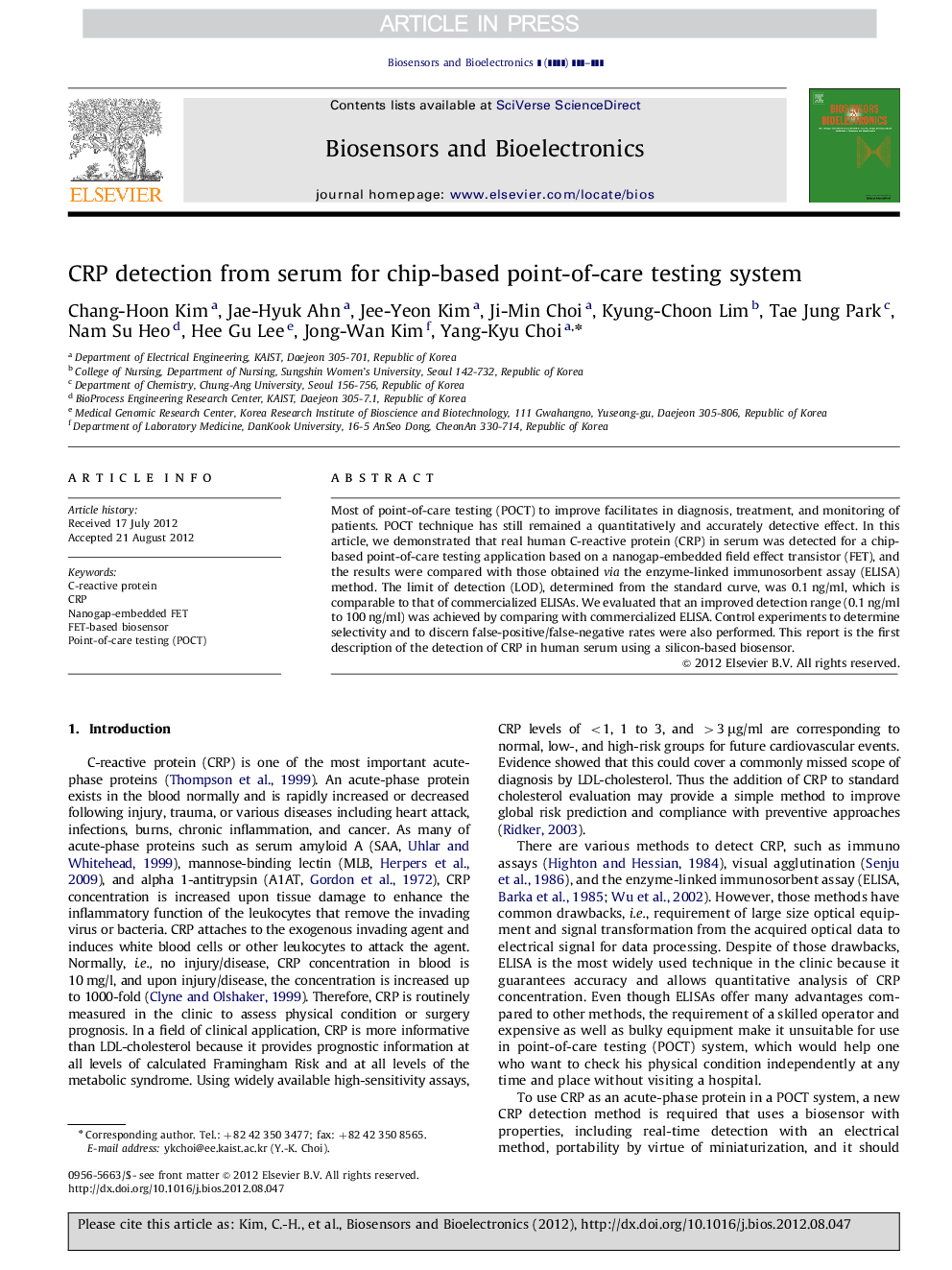| Article ID | Journal | Published Year | Pages | File Type |
|---|---|---|---|---|
| 7234478 | Biosensors and Bioelectronics | 2013 | 6 Pages |
Abstract
Most of point-of-care testing (POCT) to improve facilitates in diagnosis, treatment, and monitoring of patients. POCT technique has still remained a quantitatively and accurately detective effect. In this article, we demonstrated that real human C-reactive protein (CRP) in serum was detected for a chip-based point-of-care testing application based on a nanogap-embedded field effect transistor (FET), and the results were compared with those obtained via the enzyme-linked immunosorbent assay (ELISA) method. The limit of detection (LOD), determined from the standard curve, was 0.1Â ng/ml, which is comparable to that of commercialized ELISAs. We evaluated that an improved detection range (0.1Â ng/ml to 100Â ng/ml) was achieved by comparing with commercialized ELISA. Control experiments to determine selectivity and to discern false-positive/false-negative rates were also performed. This report is the first description of the detection of CRP in human serum using a silicon-based biosensor.
Related Topics
Physical Sciences and Engineering
Chemistry
Analytical Chemistry
Authors
Chang-Hoon Kim, Jae-Hyuk Ahn, Jee-Yeon Kim, Ji-Min Choi, Kyung-Choon Lim, Tae Jung Park, Nam Su Heo, Hee Gu Lee, Jong-Wan Kim, Yang-Kyu Choi,
